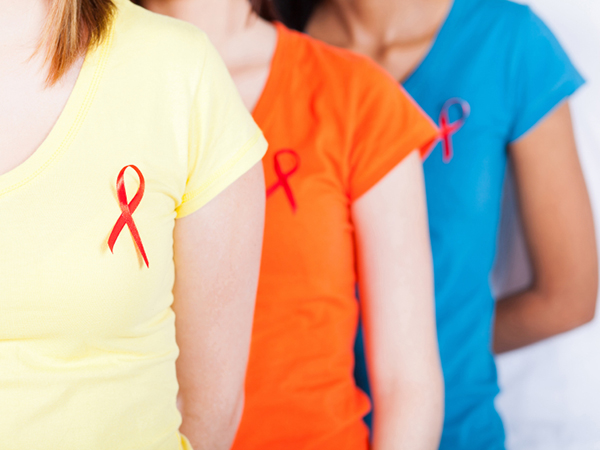Having HIV may put you at greater risk for heart disease, diabetes and certain cancers. This is due to the inflammatory, damaging nature of the virus and the side effects of some antiretroviral therapies. Eating a healthy diet may help reduce the risk of developing these conditions.
Nutrition is a valuable tool for people with HIV. Whether you have just been diagnosed, show no signs of illness or are in a more challenging stage of HIV, knowing what and how to eat can help keep your body and immune system stay strong.
Eating well can help to:
- Minimize symptoms associated with HIV.
- Lessen the side effects of medications.
Increase your quality of life.
- Improve your resistance to other infections and complications.

Healthy Eating When the Virus Is Under Control
People with HIV are encouraged to follow the same principles of healthy eating that are recommended for everyone. However, there could be a need for a modified diet depending on the person's health status.
- Consume enough calories to achieve and maintain a healthy weight.
- Eat a healthful diet based on the 2010 Dietary Guidelines for Americans following the MyPlate guidelines. Include a variety of fruits, vegetables, whole grains, low-fat milk and milk products and lean protein foods.
- Pick healthy fats such as olive oil, canola oil and omega-3s, which are found in salmon, tuna, lake trout, herring, walnuts, flaxseed and soybeans.
- Limit saturated fats (found mainly in meats and full-fat dairy food) and trans fats (found in some bakery goods and processed foods as a "partially hydrogenated fat").
- Drink enough liquids each day. Pick water, low-fat milk, teas or other healthful beverages. The amount of fluid that is recommended may change depending on a person's medications and symptoms.
3 Important Diet Tips
1- Eat adequate protein. People with HIV may have slightly higher protein needs than people without HIV. Protein is needed to make, repair and maintain all the cells in your body. It also is needed for hormones, enzymes and components of your immune system. Good protein sources include lean meats, poultry, fish, low-fat dairy foods, eggs and legumes.
2- Eat foods rich in vitamins and minerals. Some vitamins and minerals, such as zinc, iron, selenium and vitamin B12, may not be well absorbed in people with HIV. Regular visits with your doctor and dietitian will help identify if there are nutrients lacking in your diet. It's important to discuss any dietary or herbal supplements with the health care team before taking them, since they could interact with certain medications.
3- Be vigilant about eating "safe" food. Because your immune system is weakened, you are more vulnerable to food poisoning. Follow tried and true rules for food safety to decrease your risk of getting sick.
When Eating Is a Challenge
Diarrhea, nausea, vomiting, sore mouth and taste changes are all common issues that make eating difficult. If you are not feeling well because of symptoms or side effects, good nutrition becomes even more crucial for your recovery. Consuming too few calories, protein and nutrients can accelerate the progression of the disease and reduce your ability to fight.
The best therapy for these hurdles is to meet with a registered dietitian nutritionist. An RDN is probably already on your health care team; if not, ask your doctor to refer you to an RDN. If you have trouble eating or keeping weight on, an RDN can give you strategies for packing nutrition into each day. The right nutrition plan will help to make you stronger and get through difficult periods.
